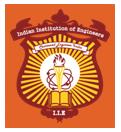THE ACADEMIC PROGRAMME OF THE INSTITUTION MAINLY CONSISTS OF SECTIONS ‘A & B’ EXAMINATIONS, POPULARLY KNOWN AS THE AMIIE EXAMINATION.
DIPIIE in Structural Engineering
Information For:
- Home
- Examination
- R&D
- Application Status
- Apply Membership Online
- RTI Information & Reply
- Awards
- Become Student's Chapter
- Online Verification
- Placement Service
- Alumni Association
- Approval & Recognition
- AMIIE(B.Tech./B.E.)
- DIPIIE-DMIIE-TMIIE(Diploma)
- List of Student's Chapter
- Our Vision
- Circular/Notice/Tender
- Hall Ticket
- Examination Result
- Vacancy & Career
- Global Linkage
- Downloads
Key Highlights of the AMIIE
- Project based learning through industry collaborations.
- Focus on skill building & practical implementations.
- Interactive sessions with industry experts through Student's Chapter.
About
Structural Engineering is a branch of civil engineering that focuses on the design, analysis, and construction of structures like buildings, bridges, and dams. Structural engineers ensure that these structures are safe, stable, and able to withstand external forces such as weather, traffic, and seismic activity. They use advanced materials and software to create designs, assess potential risks, and ensure compliance with safety regulations.
Career
A career in Structural Engineering is centered around designing, analyzing, and constructing safe and stable structures. Structural engineers work on projects like buildings, bridges, dams, and other infrastructure. They ensure that these structures can withstand environmental forces such as wind, earthquakes, and heavy loads. Structural engineers apply their knowledge of physics, material science, and mathematics to create designs that balance safety, functionality, and cost-effectiveness.
Key roles include design engineers, who create the structure’s blueprint; analysis engineers, who evaluate the strength and stability of materials; construction engineers, who oversee the actual building process; and project managers, who coordinate resources and timelines. With the increasing global focus on infrastructure development, sustainability, and resilience, the demand for structural engineers is growing.
Professionals in this field work across a range of industries, from construction firms and government agencies to consulting firms and research institutions. A degree in civil engineering, with a specialization in structural engineering, is typically required. This field offers strong job prospects, competitive salaries, and career advancement opportunities, with many paths for specialization in areas like seismic design, wind engineering, and sustainable building materials.
Job Prospects
High Demand: With the growing need for infrastructure development, especially in urban areas, structural engineers are in high demand globally.
Diverse Roles: Opportunities in design, analysis, construction, project management, and consultancy.
Global Reach: Jobs are available in construction firms, government agencies, and private consultancies worldwide.
Specialization: Demand for engineers specializing in areas like seismic design, sustainable construction, and structural safety is rising.
Structural Engineers typically earn between $60,000 and $90,000 annually, depending on experience, location, and industry. Senior engineers or those working in specialized fields such as seismic or bridge design can earn upwards of $120,000. Additional benefits may include bonuses, healthcare, and retirement plans.
Section-A
Section-B
- STRENGTH OF MATERIALS
- FLUID MECHANICS
- MATERIAL SCIENCE & ENGINEERING
- WORKSHOP TECHNOLOGY
- ENVIRONMENTAL ENGINEERING
- METROLOGY
- TECHNICAL ENGINEERING DRAWING
- ELEMENTS OF R.C.C. DESIGN
- IRRIGATION ENGINEERING
- SURVEYING & LEVELLING
- SOIL & FOUNDATION ENGG.
- CONCRETE TECHNOLOGY
- STEEL STRUCTURE DESIGN
- CONSTRUCTION MATERIAL
- STRUCTURAL MACHINES
- BUILDING CONSTRUCTION
- THEORY OF STRUCTURE
- ESTIMATING & COSTING
What Is AMIIE?
Full form of AMIIE is “Associate Member of the Indian Institution of Engineers”. AMIIE is a professional certification given by Indian Institution of Engineers (IIE).

